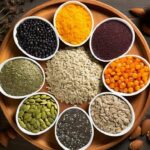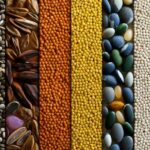Nutritional Value of Chia Seeds
Chia Seeds: A Breakdown of 100g Benefits

- Caloric composition
- Protein content
We are about to reveal the incredible benefits of chia seeds, and trust us, you will be amazed by what these tiny but powerful seeds can do!
Packed with essential nutrients, chia seeds are a game-changer for your health. From their high fiber content to the omega-3 fatty acids they provide, these little seeds are a nutritional powerhouse.
Get ready to discover the amazing ways chia seeds can improve your well-being and take your health to a whole new level.
Let’s dive in!
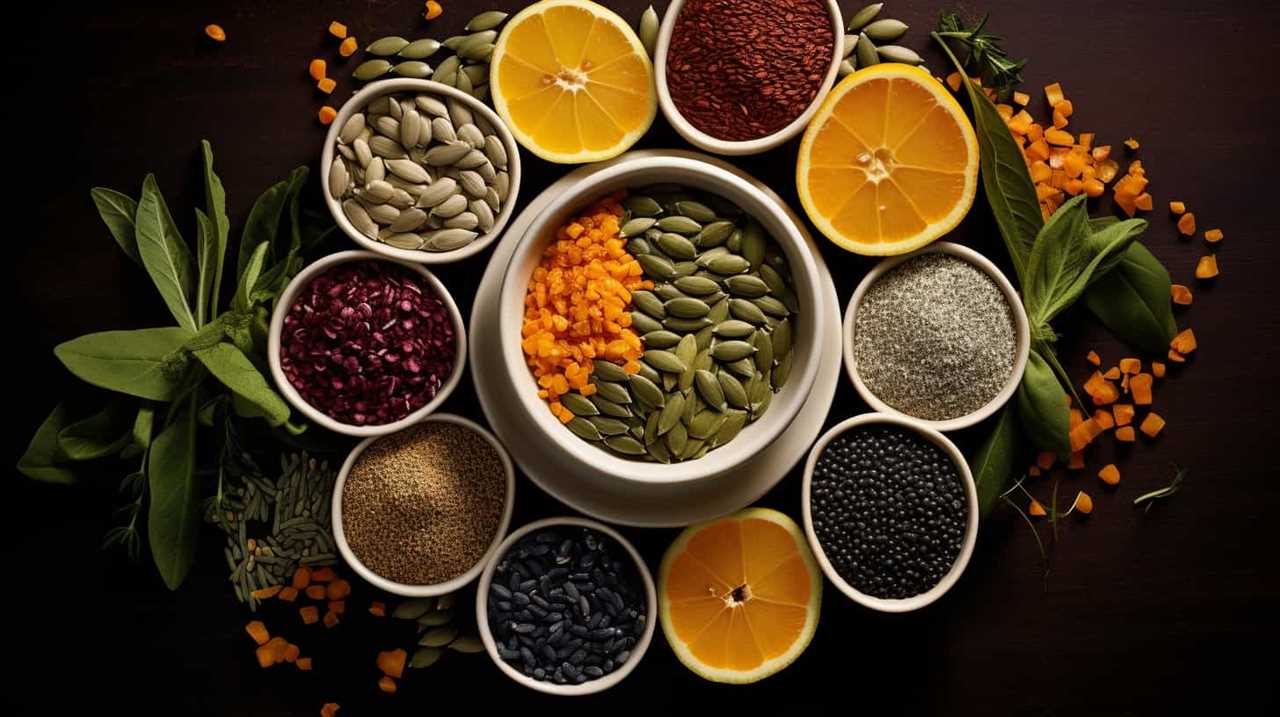
Key Takeaways
- Chia seeds are packed with essential nutrients, including high fiber content and omega-3 fatty acids.
- Incorporating chia seeds into your diet supports digestive health, maintains a healthy weight, and promotes overall health.
- Chia seeds are rich in omega-3 fatty acids, which support heart and brain health.
- Chia seeds are a significant source of essential minerals and vitamins that are crucial for bone, teeth, and overall health.
Macronutrient Profile
Chia seeds are known for their high fiber content, with approximately 34.4g of fiber per 100g serving. Fiber is crucial for maintaining healthy digestion and preventing constipation. It also helps to regulate blood sugar levels, reduce cholesterol, and promote satiety, making it beneficial for weight management. Additionally, chia seeds are a good source of omega-3 fatty acids, which are essential fats that support heart health and can reduce inflammation in the body. Incorporating chia seeds into your diet can provide a wide range of health benefits, making them a valuable addition to any meal or snack.
Fiber Content
When it comes to the nutritional value of chia seeds, one important aspect to consider is their fiber content. Chia seeds are an excellent source of dietary fiber, which is essential for digestive health and weight management. Fiber helps promote regular bowel movements, prevents constipation, and supports a healthy gut microbiome. Additionally, consuming fiber-rich foods like chia seeds can aid in weight management by increasing feelings of fullness and reducing appetite.
To give you a better idea of the fiber content in chia seeds, here is a table showcasing the amount of fiber found in 100 grams of chia seeds:
| Fiber Content |
|---|
| 34.4 grams |
As you can see, chia seeds are a fantastic source of fiber, providing over 100% of the recommended daily intake in just a 100-gram serving. Including chia seeds in your diet can be an effective way to support digestive health and maintain a healthy weight.

Omega-3 Fatty Acids
One of the key benefits of chia seeds is their high content of omega-3 fatty acids. Omega-3 fatty acids are essential fats that play a crucial role in maintaining heart health and supporting brain function. These healthy fats have been shown to reduce the risk of heart disease by lowering blood pressure, reducing inflammation, and improving cholesterol levels. Additionally, omega-3 fatty acids are important for brain health and can enhance cognitive function, memory, and mood. Chia seeds are an excellent plant-based source of omega-3 fatty acids, making them a valuable addition to any diet. Incorporating chia seeds into your meals can provide you with the essential nutrients your body needs for optimal heart and brain health.
Transitioning to the next section on antioxidant power, chia seeds also offer a range of antioxidants that further enhance their health benefits.
Antioxidant Power
Continuing from the previous subtopic on omega-3 fatty acids, we can now explore the antioxidant power of chia seeds. Chia seeds are packed with antioxidants, which play a vital role in protecting our cells from damage caused by harmful molecules called free radicals.
Here are the antioxidant benefits of chia seeds:

-
High levels of phenolic compounds: Chia seeds contain a wide range of phenolic compounds, such as chlorogenic acid and caffeic acid, which have potent antioxidant properties. These compounds help neutralize free radicals and reduce oxidative stress in the body.
-
Abundance of flavonoids: Chia seeds are also rich in flavonoids, including quercetin and kaempferol. These antioxidants have been linked to numerous health benefits, such as reducing inflammation and protecting against chronic diseases like heart disease and cancer.
Micronutrient Highlights
Let’s explore the micronutrient highlights of chia seeds. These tiny seeds pack a powerful punch when it comes to their vitamin and mineral content.
Chia seeds are an excellent source of essential minerals such as calcium, magnesium, and phosphorus, which are crucial for maintaining strong bones and teeth. They also contain a significant amount of iron, which is essential for oxygen transport and energy production in the body.

In terms of vitamins, chia seeds are rich in vitamin B3, also known as niacin, which plays a vital role in metabolism and nervous system function. Additionally, chia seeds are a good source of vitamin E, a powerful antioxidant that helps protect our cells from damage.
Incorporating chia seeds into your diet can provide you with these essential micronutrients, contributing to overall health and well-being.
Frequently Asked Questions
How Do Chia Seeds Compare to Other Seeds in Terms of Macronutrient Profile?
When comparing the macronutrient profiles of chia seeds and other seeds, it is important to note that chia seeds are high in fiber, protein, and healthy fats. Incorporating them into a balanced diet can provide maximum health benefits.
Can Consuming Chia Seeds Help With Weight Loss?
Chia seeds are a great addition to a weight loss diet. They are high in fiber and can help increase satiety, making you feel fuller for longer.
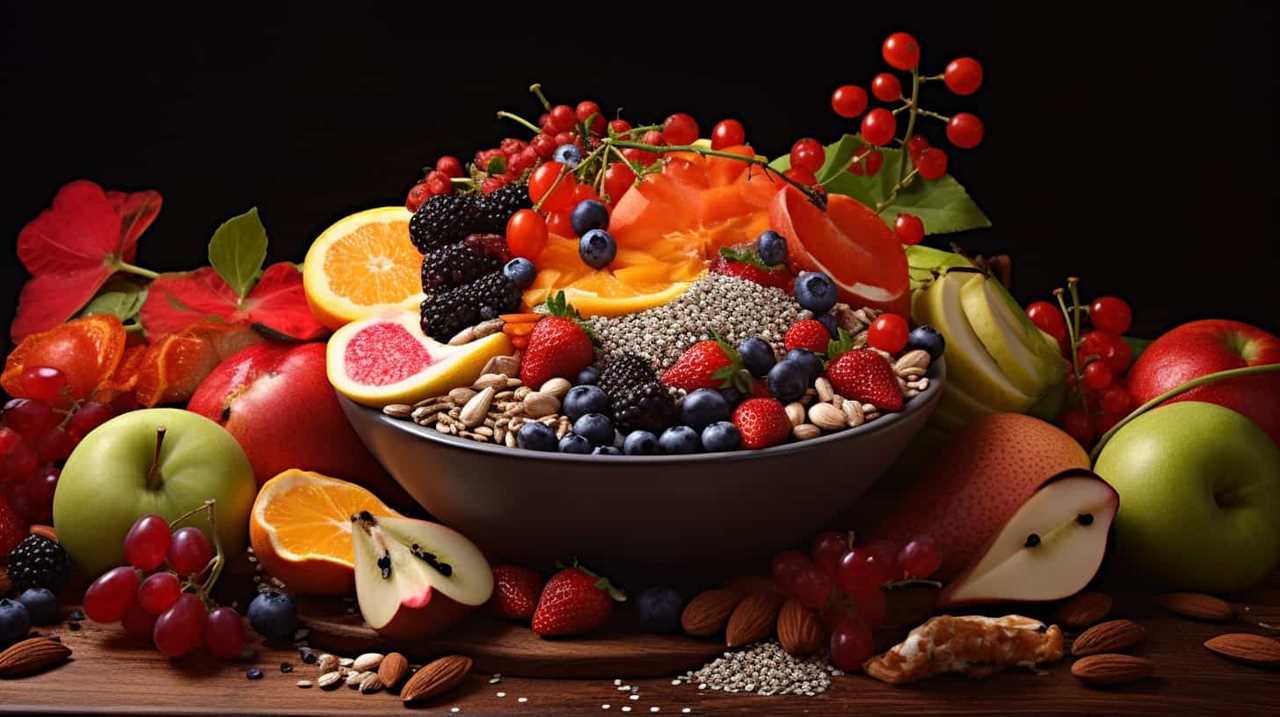
Are There Any Potential Side Effects or Risks Associated With Consuming Chia Seeds?
Potential side effects or risks of consuming chia seeds include gastrointestinal issues like bloating or diarrhea. Allergic reactions are also possible. It’s important to start with small amounts and drink plenty of water to minimize these risks.
Can Chia Seeds Be Consumed by Individuals With Nut Allergies?
Chia seeds are generally safe for individuals with nut allergies, as they are not related to tree nuts or peanuts. However, it is always important to check for cross-contamination and consult with a healthcare professional if unsure.
Are There Any Cooking or Preparation Methods That Can Enhance the Nutritional Benefits of Chia Seeds?
Cooking and preparation methods can enhance the nutritional benefits of chia seeds. Soaking them in liquid can create a gel-like consistency, making them easier to digest and increasing nutrient absorption. Adding them to smoothies or baking them into recipes are other great options.
Conclusion
In conclusion, chia seeds are a powerhouse of nutrients. With a macronutrient profile rich in protein, fiber content, and omega-3 fatty acids, they offer numerous health benefits.

One interesting statistic is that just 100g of chia seeds contain approximately 34g of fiber, which is more than the daily recommended intake for adults.
Including chia seeds in your diet can help improve digestion, promote heart health, and support weight management.
So why not sprinkle some chia seeds on your next meal and reap the benefits?
Hi, I’m Sarah. I write for Turtle Tree Seeds, a news blog that loves food – all kinds of food. But especially bacon, chocolate, and veggies. We’re on a mission to show the world that you can enjoy all of those things, even kale and brussels sprouts. Because we believe that when it comes to food, there’s no such thing as guilty pleasures. Just pleasures.
I’m also a huge fan of puns (obviously).
Nutritional Value of Chia Seeds
Why Trust Certified Seed-Based Weight Loss Benefits?
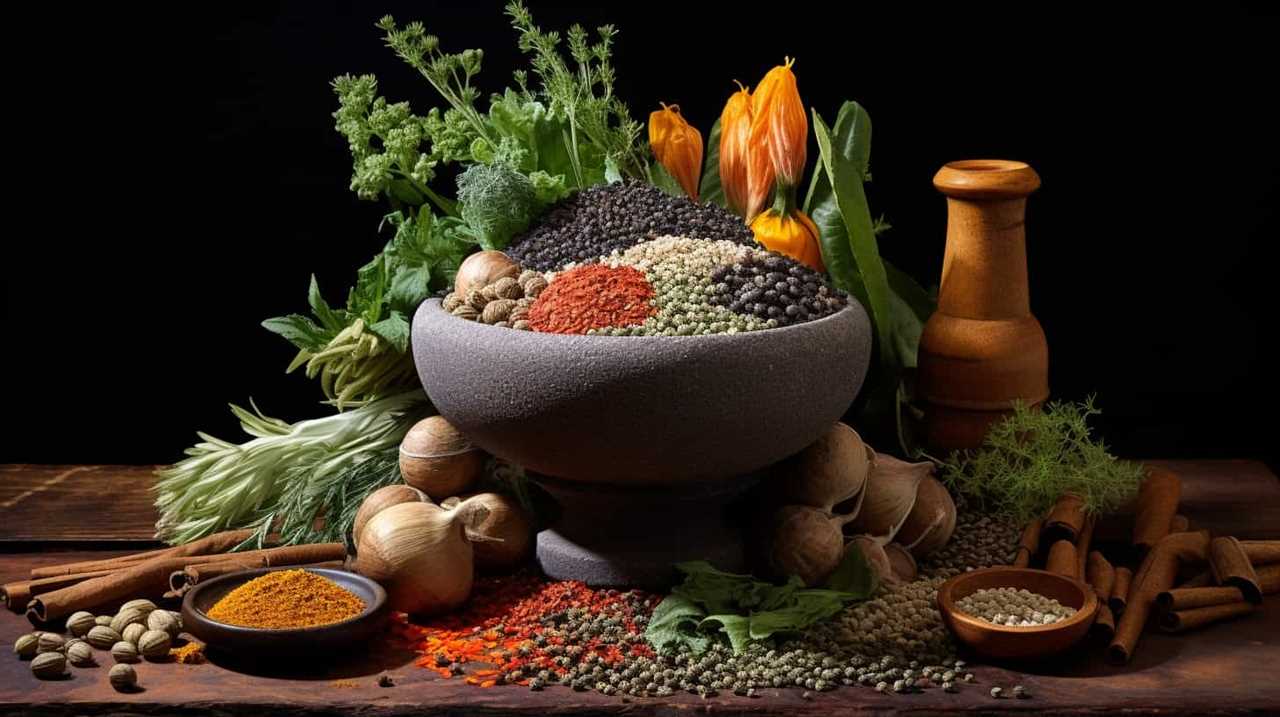

Have you tried multiple weight loss methods without any luck? Look no further! The answer you’ve been seeking is right here: certified seed-based weight loss benefits.
In this article, we will delve into the science behind why you can trust these benefits. From appetite control to improved digestion, we will explore the various ways that incorporating certified seeds into your diet can help you achieve your weight loss goals.
Get ready to discover the power of seeds!
Key Takeaways
- Chia seeds are a natural energy booster and versatile ingredient in recipes.
- Chia seeds are packed with essential nutrients, including fiber, omega-3 fatty acids, and protein.
- Chia seeds promote feelings of fullness and help control appetite due to their high fiber content.
- Chia seeds are a good source of omega-3 fatty acids, which support brain health and reduce inflammation.
Chia Seeds: a Weight Loss Superfood
We frequently rely on certified seed-based weight loss benefits, and one superfood that stands out is chia seeds. Chia seeds aren’t only a natural energy booster but also a versatile ingredient in recipes.
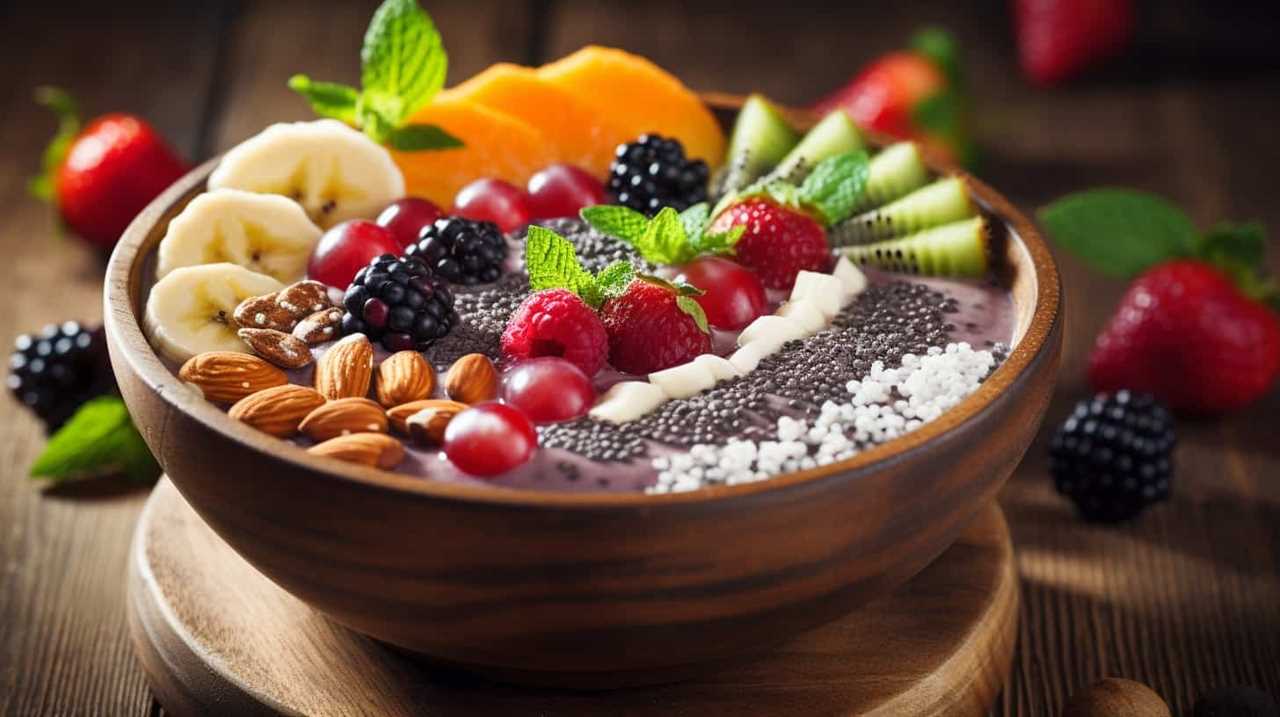
These tiny black seeds are packed with essential nutrients that contribute to weight loss and overall health. Chia seeds are rich in fiber, which promotes feelings of fullness and helps control appetite. They also contain omega-3 fatty acids, which support brain health and reduce inflammation. Additionally, chia seeds are a good source of protein, aiding in muscle growth and repair. This makes them an excellent choice for those looking to lose weight while maintaining muscle mass.
Incorporating chia seeds into your diet can be as simple as adding them to your morning smoothie or sprinkling them over yogurt or salads. Their mild, nutty flavor makes them easy to incorporate into a wide range of dishes.
With their numerous health benefits, chia seeds are a fantastic addition to any weight loss plan.
Protein-Packed Chia Seeds for Appetite Control
How can protein-packed chia seeds help control appetite?

Chia seeds are a great addition to any weight loss plan due to their high protein content. Protein is known to increase feelings of fullness and reduce appetite, making it an effective tool for weight management.
Chia seeds are particularly beneficial in this regard as they’re an excellent source of plant-based protein. In fact, just one ounce of chia seeds contains around 4 grams of protein. This makes them a convenient and nutritious option for those looking to curb their hunger and prevent overeating.
Incorporating chia seeds into your diet can be as simple as adding them to smoothies, yogurt, or oatmeal. There are also numerous chia seed recipes available that can provide you with a satisfying and appetite-suppressing meal or snack option.
Chia Seeds: a Rich Source of Omega-3 Fatty Acids
Chia seeds offer a rich source of omega-3 fatty acids, which are essential for maintaining heart health. Omega-3 fatty acids are a type of polyunsaturated fat that have been shown to have numerous benefits for cardiovascular health. They help reduce inflammation, lower blood pressure, and decrease the risk of heart disease. Consuming foods high in omega-3 fatty acids, like chia seeds, can help support a healthy heart.

Chia seeds are also a great source of fiber, which can further contribute to heart health by helping to lower cholesterol levels. Including chia seeds in your diet can be a simple and effective way to boost your intake of omega-3 fatty acids and support overall heart health.
Fiber-Rich Chia Seeds for Improved Digestion
Including chia seeds in our diet provides a significant amount of fiber, which can greatly enhance digestion and promote overall digestive health. Fiber plays a crucial role in maintaining regular bowel movements and preventing constipation. Chia seeds, with their high fiber content, act as a natural detoxifier by aiding in the elimination of waste and toxins from the body.
Improved gut health is essential for proper digestion and nutrient absorption, and chia seeds can help achieve this by supporting the growth of beneficial gut bacteria. The soluble fiber in chia seeds forms a gel-like substance in the digestive system, which slows down the absorption of sugars and promotes a feeling of fullness. This can be particularly beneficial for weight management and reducing the risk of overeating.
Transitioning into the subsequent section about chia seeds being a low-calorie addition to one’s diet, their high fiber content makes them an ideal choice for those looking to maintain a healthy weight.
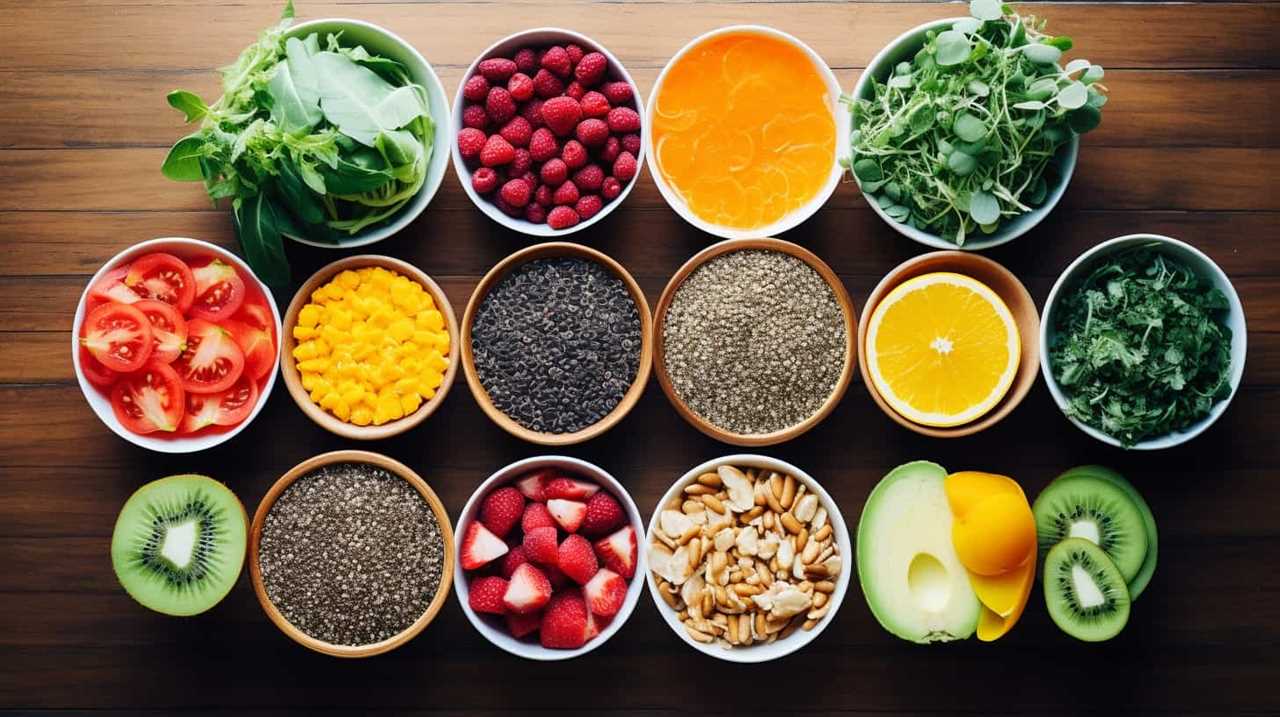
Chia Seeds: a Low-Calorie Addition to Your Diet
When incorporating chia seeds into our diet, we can enjoy the benefits of a low-calorie addition that supports weight management and overall health. Chia seeds are not only nutrient-dense but also low in calories, making them an ideal choice for those looking to maintain a healthy weight. With just 137 calories per ounce, chia seeds provide a range of essential nutrients, including fiber, protein, omega-3 fatty acids, and antioxidants. These tiny seeds are versatile and can be incorporated into various low-carb chia recipes, such as smoothies, salads, and baked goods. For those seeking a satisfying and nutritious dessert alternative, chia seed pudding is an excellent choice. It can be made using alternative sweeteners, like stevia or monk fruit, to keep the calorie count low. By adding chia seeds to our diet, we can enjoy a low-calorie addition that not only supports weight management but also provides a wide range of health benefits.
| Benefits of Chia Seeds | Low-Calorie Addition |
|---|---|
| Nutrient-dense | Supports weight management |
| High in fiber | Versatile and adaptable to low-carb recipes |
| Rich in omega-3 fatty acids | Satisfying and nutritious dessert alternative |
| Packed with antioxidants | Alternative sweeteners can be used to keep the calorie count low |
| Supports overall health | Provides essential nutrients |
Frequently Asked Questions
Are There Any Potential Side Effects or Risks Associated With Consuming Chia Seeds for Weight Loss?
Potential side effects and risks of consuming chia seeds for weight loss should be considered. A comprehensive review assessing the efficacy and safety of chia seeds for weight management is necessary to make an informed decision.
How Do Chia Seeds Compare to Other Weight Loss Supplements on the Market?
Comparing chia seeds to popular weight loss supplements like green tea extract and Garcinia Cambogia reveals their unique benefits. Analyzing scientific evidence allows us to make informed choices when it comes to weight loss strategies.
Can Chia Seeds Help With Long-Term Weight Management or Are Their Effects Only Temporary?
Chia seeds can contribute to long-term weight management due to their high fiber and protein content, which promote feelings of fullness and help control appetite. Their effects on weight loss are not temporary but can be sustained with a balanced diet and regular exercise.
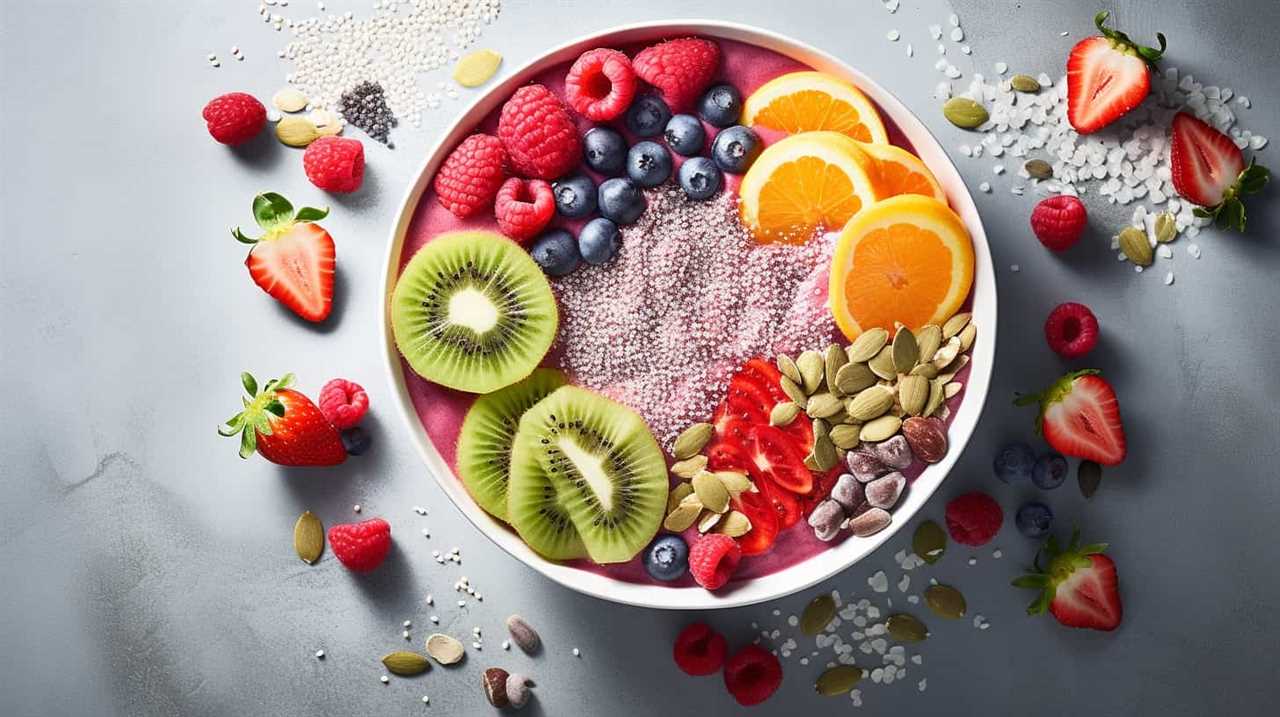
Are There Any Specific Recommendations or Guidelines for Incorporating Chia Seeds Into a Weight Loss Diet?
Incorporating chia seeds into a weight loss diet can be beneficial. However, it is important to follow specific recommendations and guidelines. Potential side effects or risks associated with consuming chia seeds for weight loss should be considered.
Can Chia Seeds Be Consumed by Individuals With Certain Dietary Restrictions, Such as Gluten-Free or Vegan Diets?
Chia seeds can be consumed by individuals with gluten-free and vegan diets. They are naturally gluten-free and are a great source of plant-based protein and omega-3 fatty acids.
Conclusion
In conclusion, certified seed-based weight loss benefits, particularly those of chia seeds, offer a scientifically proven solution for individuals seeking to achieve their weight loss goals.
With their protein-packed composition, appetite-controlling properties, omega-3 fatty acids, and fiber-rich nature, chia seeds provide a low-calorie addition to any diet.
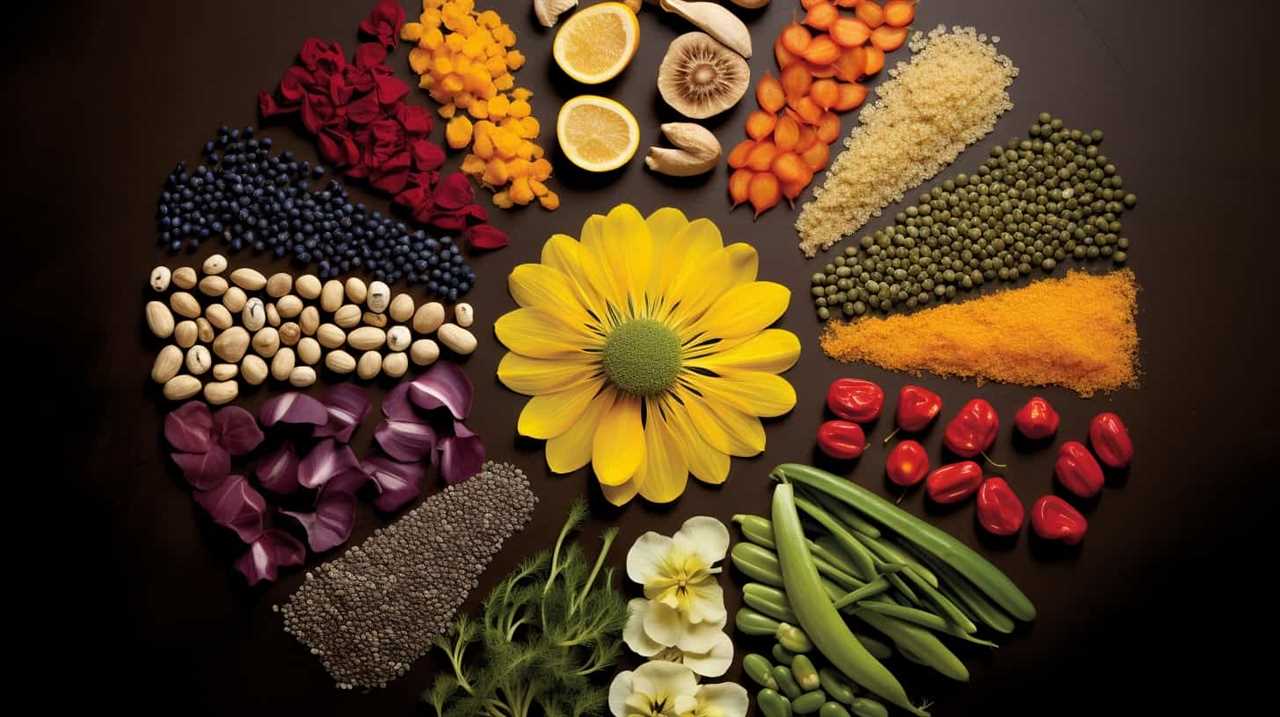
Embracing the power of these certified seeds can lead to improved digestion and overall well-being.
Start incorporating chia seeds into your diet today and witness the transformative effects for yourself.
Hi, I’m Sarah. I write for Turtle Tree Seeds, a news blog that loves food – all kinds of food. But especially bacon, chocolate, and veggies. We’re on a mission to show the world that you can enjoy all of those things, even kale and brussels sprouts. Because we believe that when it comes to food, there’s no such thing as guilty pleasures. Just pleasures.
I’m also a huge fan of puns (obviously).
Nutritional Value of Chia Seeds
Flax Seeds Vs Chia: a Four-Point Nutrient Showdown
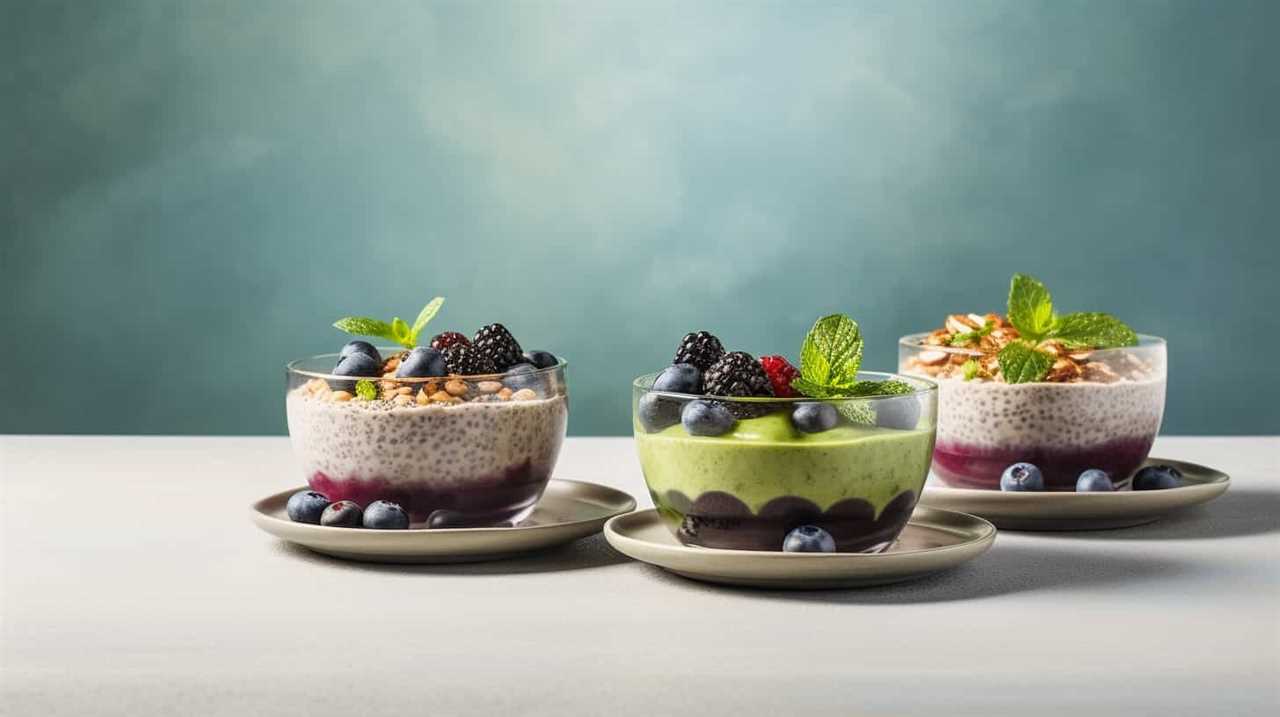

Are you curious about which superfood ranks highest in terms of nutritional value? No need to fret, we have all the information you require!
In this article, we’re going to compare flax seeds and chia seeds in a four-point nutrient showdown. We’ll delve into their protein content, omega-3 fatty acid levels, fiber content, and antioxidant profiles.
By the end, you’ll have a clear understanding of the nutritional benefits of each seed and be able to make an informed choice for your health.
Let’s dive in!

Key Takeaways
- Chia seeds contain more protein than flax seeds.
- Chia seeds have higher levels of omega-3 fatty acids compared to flax seeds.
- Flax seeds are rich in lignans, which have anti-cancer properties.
- Both flax seeds and chia seeds are excellent sources of fiber, promoting digestive health and weight management.
Protein Content Comparison
When comparing the protein content of flax seeds and chia seeds, it’s important to note that chia seeds contain more protein than flax seeds. Chia seeds are a powerhouse of nutrients and have gained popularity for their numerous health benefits. They’re an excellent source of plant-based protein, making them a great addition to a vegetarian or vegan diet.
Protein is essential for building and repairing tissues, maintaining muscle mass, and supporting overall health. Including chia seeds in your diet can help meet your daily protein needs.
Flax seeds, on the other hand, are also a good source of protein but contain slightly less compared to chia seeds. However, they offer other health benefits such as being high in fiber and omega-3 fatty acids.
Incorporating both flax seeds and chia seeds into your diet can provide a well-rounded nutritional profile. To enjoy the benefits of flax and chia seeds, you can try incorporating them into your meals through various flax seed recipes and chia seed recipes.

Omega-3 Fatty Acid Levels
Chia seeds have higher levels of omega-3 fatty acids compared to flax seeds. Omega-3 fatty acids are essential fats that our bodies need for optimal health. These fats play a crucial role in brain function, reducing inflammation, and supporting heart health. Incorporating omega-3 fatty acids into our diet has been linked to numerous benefits, such as improved cognitive function, reduced risk of heart disease, and decreased inflammation.
The recommended daily intake of omega-3 fatty acids varies depending on age, sex, and overall health, but it’s generally recommended to consume between 250-500 milligrams per day. Chia seeds are an excellent source of omega-3 fatty acids, with just one ounce providing approximately 4,915 milligrams, while flax seeds offer about 2,350 milligrams per ounce.
Now, let’s move on to the next section and analyze the fiber content of these two nutritious seeds.
Fiber Content Analysis
Continuing from our previous discussion on omega-3 fatty acid levels, let’s now delve into the fiber content analysis of flax seeds and chia seeds. Fiber is an essential nutrient that offers numerous benefits for our overall health. When it comes to flax seeds and chia seeds, both are excellent sources of fiber. Here are four important points to consider:

-
Flax seeds contain both soluble and insoluble fiber, which promotes healthy digestion and helps regulate blood sugar levels.
-
Chia seeds are rich in soluble fiber, which forms a gel-like substance in the digestive system, aiding in the absorption of nutrients and promoting bowel regularity.
-
Both flax seeds and chia seeds can help reduce cholesterol levels due to their high fiber content.
-
The fiber in both seeds also provides a feeling of fullness, which can aid in weight management.

Now that we’ve examined the fiber content, let’s move on to the next section: the antioxidant comparison.
Antioxidant Comparison
Now let’s compare the antioxidants found in flax seeds and chia seeds. Both flax seeds and chia seeds are rich in antioxidants, which are compounds that help protect cells from damage caused by free radicals. These antioxidants have been linked to various health benefits, such as reducing inflammation and preventing chronic diseases like heart disease and cancer.
Flax seeds contain high levels of lignans, which are a type of antioxidant that has been shown to have anti-cancer properties. Chia seeds, on the other hand, are rich in flavonoids, another type of antioxidant that has been associated with reducing the risk of heart disease.
When it comes to cooking and baking applications, both flax seeds and chia seeds can be used as a healthy addition to various recipes. Flax seeds can be ground and used as a substitute for eggs in vegan baking, while chia seeds can be used as a thickening agent in puddings and sauces.

Vitamin and Mineral Showdown
In terms of vitamins and minerals, both flax seeds and chia seeds provide essential nutrients that contribute to a healthy diet. These tiny powerhouses contain a variety of vitamins and minerals that support overall health and well-being. Here are four key nutrients found in both flax seeds and chia seeds:
-
Omega-3 Fatty Acids: Both flax seeds and chia seeds are rich in omega-3 fatty acids, which are essential for brain health and reduce inflammation in the body.
-
Fiber: Flax seeds and chia seeds are excellent sources of soluble and insoluble fiber, promoting digestive health and aiding in weight management.
-
Calcium: Chia seeds and flax seeds are good sources of calcium, which is essential for strong bones and teeth.

-
Magnesium: These seeds are also high in magnesium, an essential mineral that plays a role in energy production and supports heart health.
When it comes to vitamin and mineral absorption, both flax seeds and chia seeds can be beneficial additions to your diet. However, it’s important to note that the bioavailability of these nutrients can vary depending on individual factors and how the seeds are consumed.
It’s always best to consult with a healthcare professional or registered dietitian for personalized advice on incorporating these seeds into your diet for optimal health benefits.
Frequently Asked Questions
Which Seed Is Better for Weight Loss: Flax Seeds or Chia Seeds?
When comparing flax seeds and chia seeds for weight loss, it’s important to consider their nutritional profiles. Both seeds are great sources of fiber and healthy fats, which can aid in weight management when incorporated into a balanced diet.

Can Flax Seeds and Chia Seeds Be Consumed Together for Maximum Health Benefits?
Yes, flax seeds and chia seeds can be consumed together for maximum health benefits. They both offer unique nutritional profiles and can complement each other in recipes for added nutrition.
Are Flax Seeds and Chia Seeds Suitable for People With Nut Allergies?
Are flax seeds and chia seeds suitable for people with nut allergies? We explore the nutritional differences between these seeds for those with allergies, as well as allergen cross reactivity with tree nuts.
Can Flax Seeds and Chia Seeds Be Used as a Substitute for Eggs in Baking?
Flax seeds and chia seeds can be used as a substitute for eggs in baking. They are popular in vegan recipes and offer health benefits like added fiber, omega-3 fatty acids, and antioxidants.
Are There Any Potential Side Effects of Consuming Flax Seeds or Chia Seeds in Large Quantities?
In large quantities, consuming flax seeds or chia seeds may have potential long term effects. However, incorporating them into different recipes can provide added nutrition. Let’s explore the benefits and risks together.
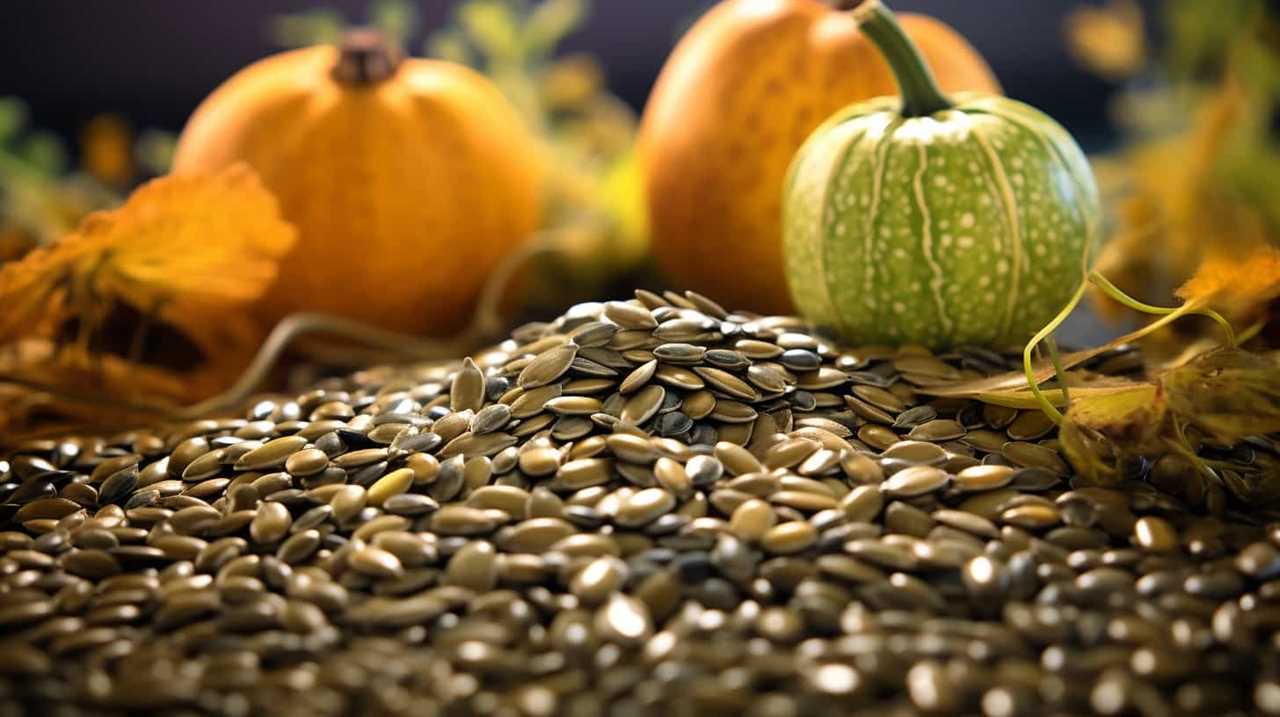
Conclusion
In conclusion, both flax seeds and chia seeds offer a range of beneficial nutrients.
While flax seeds have a slightly higher protein content, chia seeds have higher levels of omega-3 fatty acids.
In terms of fiber content, both seeds are excellent sources.
Additionally, both seeds contain antioxidants and a variety of vitamins and minerals.
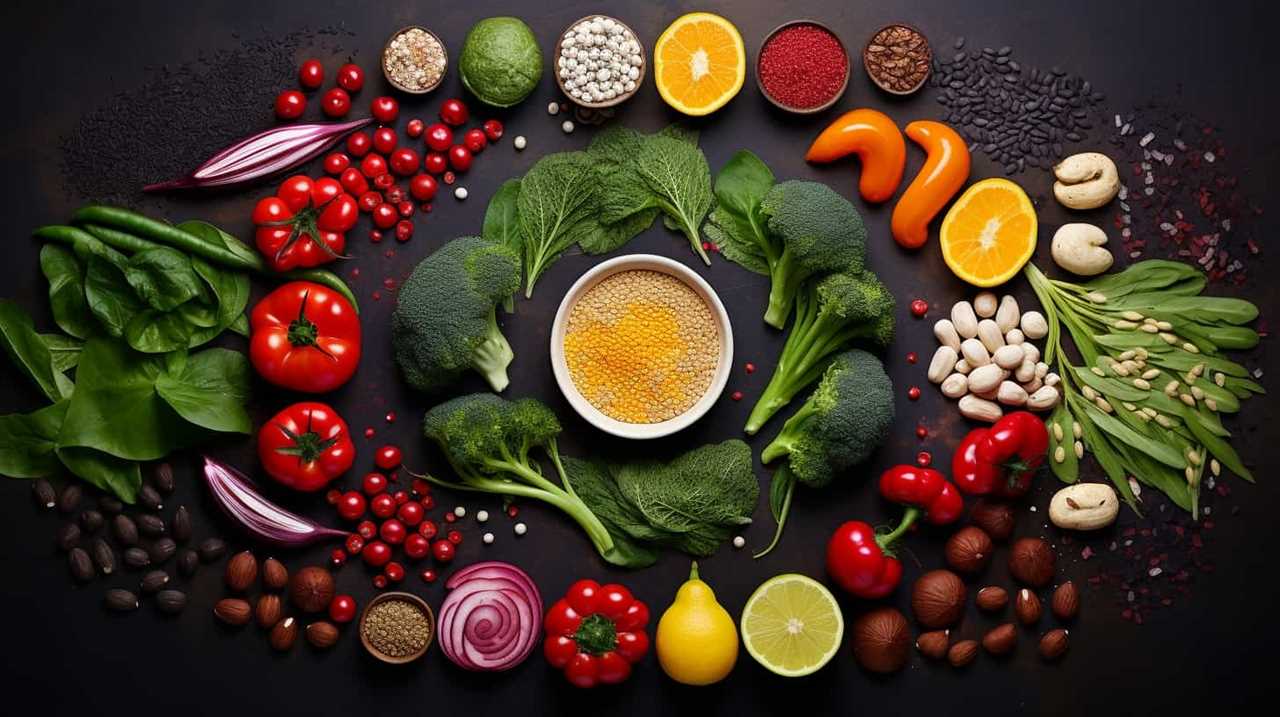
Overall, incorporating either flax seeds or chia seeds into your diet can provide a nutritional boost, making them a valuable addition to any healthy eating plan.
Their benefits are truly remarkable!
Hi, I’m Sarah. I write for Turtle Tree Seeds, a news blog that loves food – all kinds of food. But especially bacon, chocolate, and veggies. We’re on a mission to show the world that you can enjoy all of those things, even kale and brussels sprouts. Because we believe that when it comes to food, there’s no such thing as guilty pleasures. Just pleasures.
I’m also a huge fan of puns (obviously).
Nutritional Value of Chia Seeds
Comparing Nutritional Value: Flax Seeds Vs Super Seeds
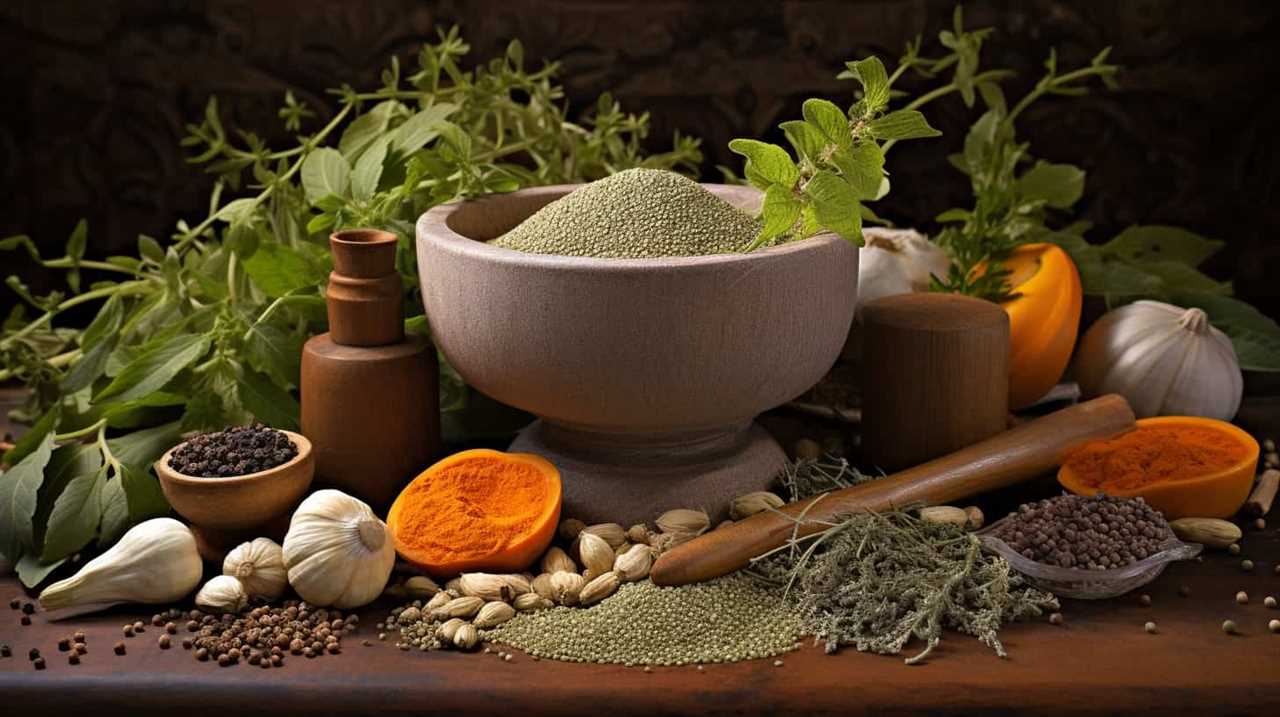
We are all aware of the health benefits of seeds, but which ones are the most beneficial? This article will compare the nutritional advantages of flax seeds with super seeds, helping you make informed choices for your wellbeing.
By examining their protein content, omega-3 fatty acids, fiber content, antioxidants, and micronutrients, we’ll provide evidence-based insights that can empower you to prioritize your health.
Let’s dive into the facts and discover the true power of these tiny yet mighty seeds.
Key Takeaways
- Chia seeds have a higher protein content compared to flax seeds.
- Chia seeds are a superior choice for meeting daily omega-3 fatty acid needs.
- Chia seeds provide both soluble and insoluble fiber, helping regulate blood sugar levels and preventing constipation.
- Chia seeds are a rich source of antioxidants, reducing the risk of chronic diseases like heart disease and cancer.
Protein Content in Chia Seeds
Chia seeds contain a high amount of protein, making them a nutritious addition to any diet. When comparing the protein content in different seeds, chia seeds stand out as an excellent choice. With approximately 5 grams of protein per ounce, they offer a significant protein boost.

In fact, chia seeds have a higher protein content compared to flax seeds, which contain around 3 grams of protein per ounce. This makes chia seeds an attractive option for those looking to increase their protein intake while enjoying the nutritional benefits of these tiny super seeds.
Whether you’re a vegetarian, vegan, or simply looking for plant-based protein sources, chia seeds can be a valuable addition to your diet.
Omega-3 Fatty Acids in Chia Seeds
When it comes to the omega-3 fatty acid content, chia seeds are a superior choice compared to flax seeds. Chia seeds pack a stronger punch when it comes to omega-3 fatty acids, containing approximately 5 grams per 1-ounce serving. On the other hand, flax seeds contain about 1.8 grams per 1-ounce serving. Omega-3 fatty acids are essential fats that play a crucial role in heart health, brain function, and reducing inflammation in the body. Incorporating chia seeds into your diet can help you meet your daily omega-3 fatty acid needs more effectively. Therefore, chia seeds are a great addition to a balanced and healthy eating plan.
Fiber Content in Chia Seeds
To continue our comparison of nutritional value between flax seeds and super seeds, let’s now examine the fiber content found in chia seeds. Chia seeds are known for their high fiber content, which contributes to their many potential health benefits. Here are four key points to consider:
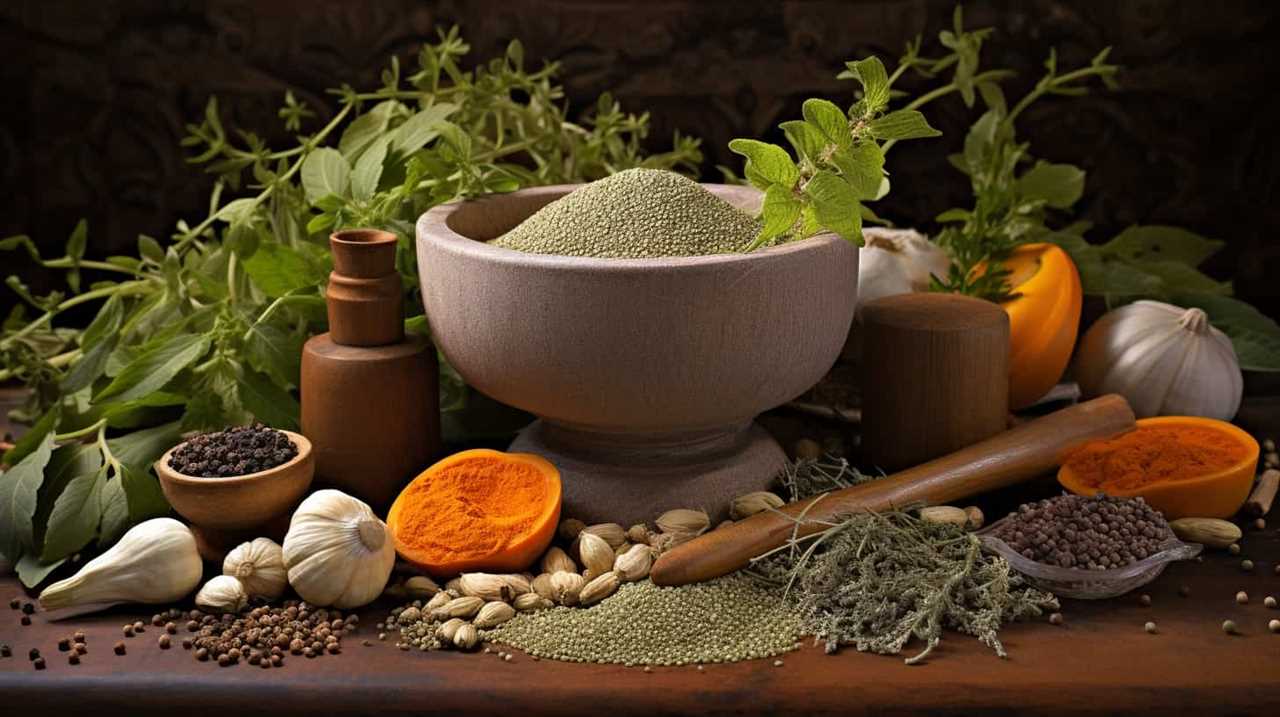
-
High Fiber Content: Chia seeds are an excellent source of dietary fiber, with around 10 grams of fiber per ounce. This high fiber content helps promote healthy digestion and can aid in weight management.
-
Soluble and Insoluble Fiber: Chia seeds contain both soluble and insoluble fiber, providing a balanced intake of both types. Soluble fiber helps regulate blood sugar levels and lowers cholesterol, while insoluble fiber adds bulk to the stool, preventing constipation.
-
Phytochemicals: Chia seeds are rich in phytochemicals, such as lignans and phenolic acids. These compounds have antioxidant and anti-inflammatory properties, which may help reduce the risk of chronic diseases like heart disease and cancer.
-
Feeling Full and Satisfied: The fiber in chia seeds absorbs liquid and expands in the stomach, creating a feeling of fullness and satisfaction. This can be beneficial for those trying to manage their appetite and control calorie intake.
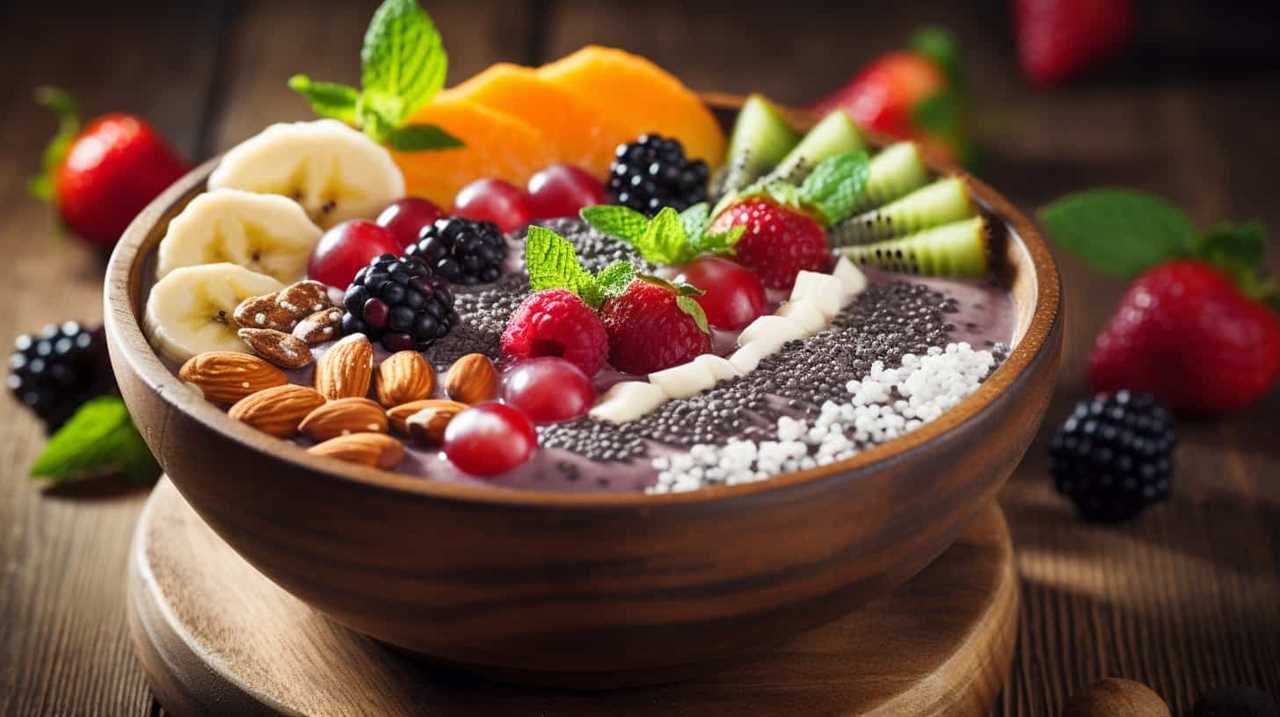
Incorporating chia seeds into your diet can be a simple and nutritious way to increase your fiber intake and enjoy the potential health benefits they offer.
Antioxidants in Chia Seeds
Incorporating antioxidants into our diet is important for maintaining good health and overall well-being. Chia seeds, in addition to being a great source of fiber, also contain antioxidants that offer numerous health benefits.
Antioxidants help protect our body from oxidative stress caused by harmful molecules called free radicals. Chia seeds are rich in antioxidants such as flavonoids, phenolic acids, and vitamin E, which help neutralize these free radicals and reduce the risk of chronic diseases like heart disease and cancer.
To reap the antioxidant benefits of chia seeds, they can be easily incorporated into various recipes. They can be added to smoothies, yogurt, oatmeal, or used as an egg substitute in baking.
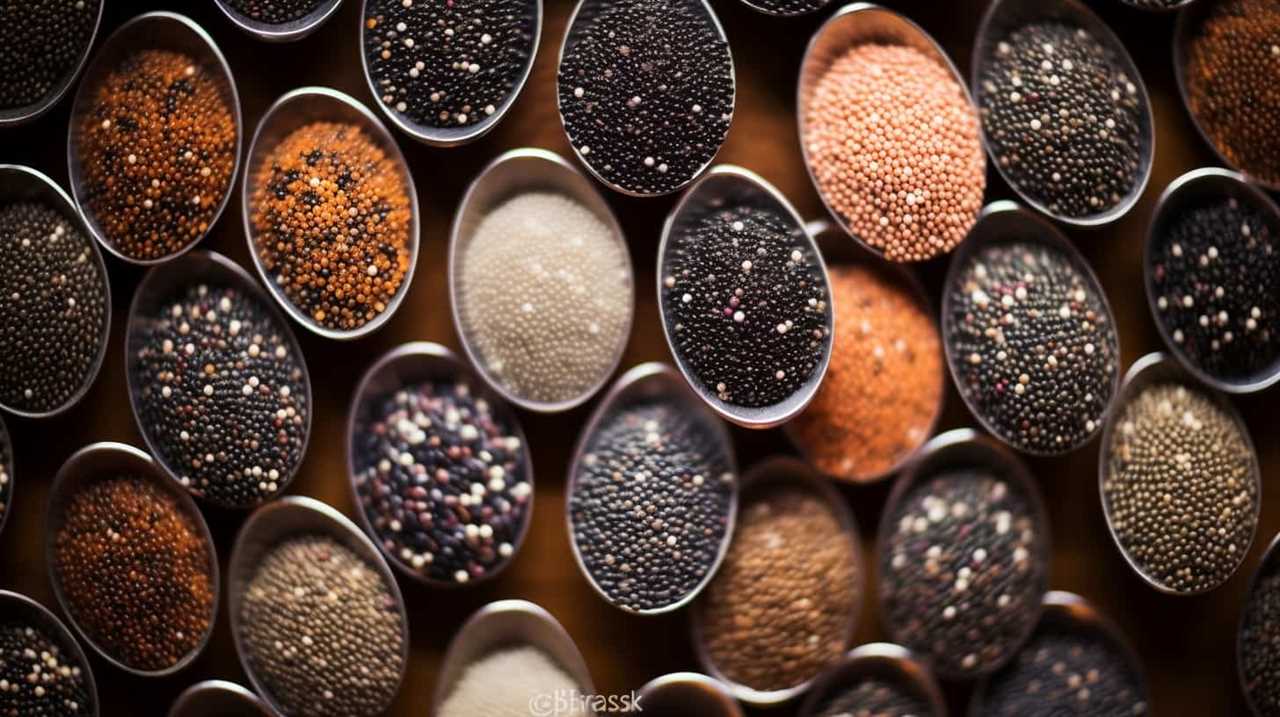
Including chia seeds in our diet is a delicious and nutritious way to boost our antioxidant intake.
Micronutrients in Chia Seeds
Chia seeds provide essential micronutrients that support our overall health and well-being. These tiny seeds are packed with important vitamins and minerals that can benefit our bodies in various ways. Here are four key micronutrients found in chia seeds and their potential health benefits:
-
Omega-3 fatty acids: Chia seeds are an excellent plant-based source of omega-3 fatty acids, which are essential for heart health, brain function, and reducing inflammation in the body.
-
Fiber: Chia seeds are rich in dietary fiber, which can aid in digestion, promote satiety, and help regulate blood sugar levels.
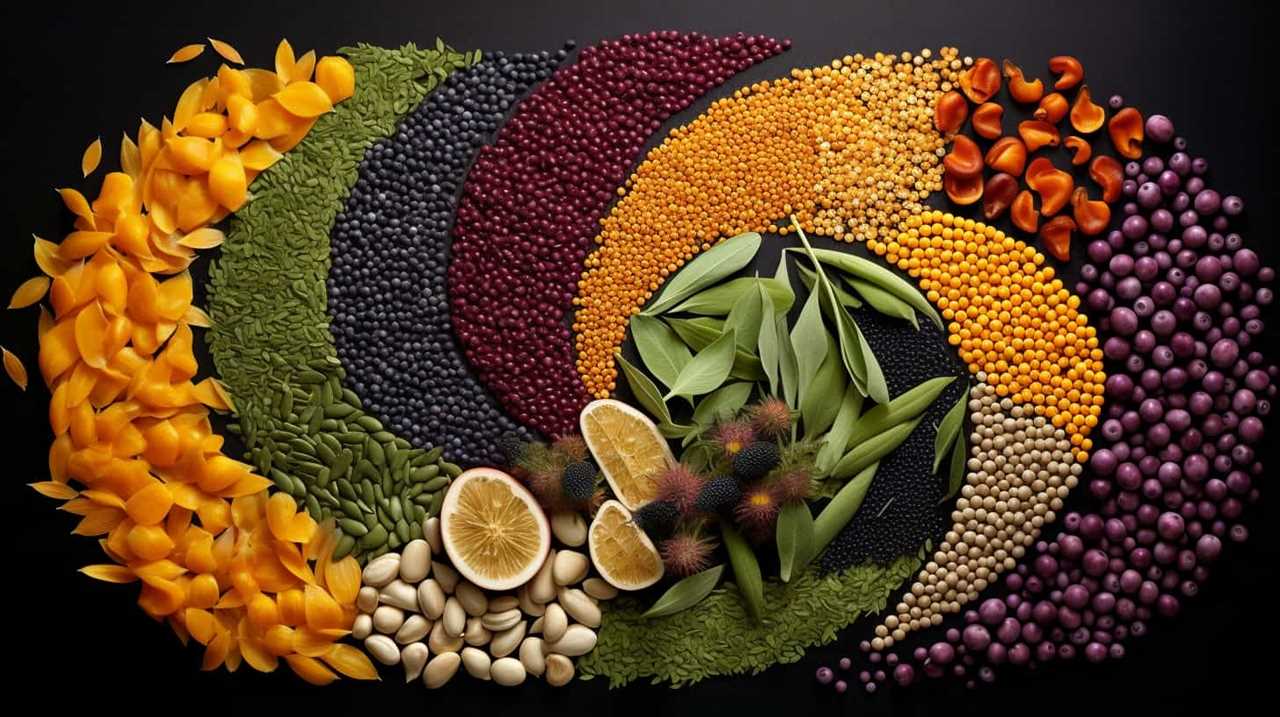
-
Calcium: Chia seeds contain a significant amount of calcium, which is crucial for maintaining strong bones and teeth, as well as supporting muscle function.
-
Antioxidants: Chia seeds are also a good source of antioxidants, which help protect our cells from damage caused by free radicals and may contribute to a lower risk of chronic diseases.
Frequently Asked Questions
Are There Any Potential Side Effects or Risks Associated With Consuming Chia Seeds?
We should be aware of potential risks and take precautions when consuming chia seeds. It’s important to note any side effects and consult a healthcare professional if needed for personalized advice.
How Do Chia Seeds Compare to Other Super Seeds in Terms of Calorie Content?
When comparing chia seeds to flax seeds in terms of calorie content, chia seeds typically have slightly more calories. However, chia seeds also offer a wide range of nutritional benefits, including high levels of fiber, protein, and omega-3 fatty acids.
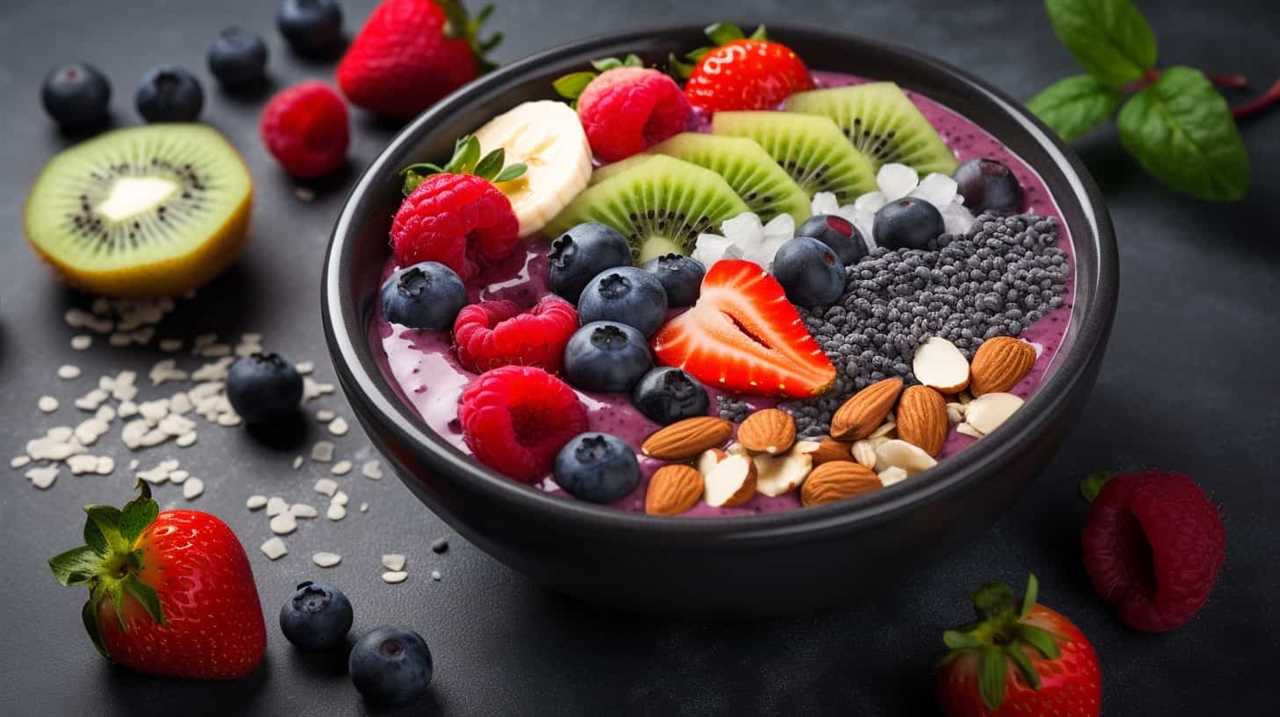
Can Chia Seeds Help With Weight Loss or Weight Management?
Chia seeds can be beneficial for weight loss or management as they can be used as a meal replacement and are a good source of omega-3 fatty acids. Incorporating them into a balanced diet may support overall health and wellness.
Are There Any Specific Recommendations for the Daily Intake of Chia Seeds?
There aren’t any specific recommendations for the daily intake of chia seeds. However, it’s important to note that chia seeds are a nutritious addition to a balanced diet and can provide various health benefits.
Can Chia Seeds Be Beneficial for Individuals With Certain Medical Conditions, Such as Diabetes or Heart Disease?
Chia seeds can help with diabetes management and benefit heart health. They are rich in fiber, omega-3 fatty acids, and antioxidants, which can improve blood sugar control and reduce the risk of heart disease.
Conclusion
In conclusion, when comparing the nutritional value of flax seeds and super seeds, it’s clear that chia seeds emerge as a superior choice.

With higher protein content, omega-3 fatty acids, fiber, antioxidants, and essential micronutrients, chia seeds offer a powerful nutritional punch.
As the saying goes, ‘good things come in small packages,’ and chia seeds truly embody this sentiment.
Incorporating them into your diet can provide numerous health benefits and support overall well-being.
Hi, I’m Sarah. I write for Turtle Tree Seeds, a news blog that loves food – all kinds of food. But especially bacon, chocolate, and veggies. We’re on a mission to show the world that you can enjoy all of those things, even kale and brussels sprouts. Because we believe that when it comes to food, there’s no such thing as guilty pleasures. Just pleasures.
I’m also a huge fan of puns (obviously).
-

 Chia Seeds3 months ago
Chia Seeds3 months agoCan Cats Have Chia Seeds?
-

 Chia Seeds3 months ago
Chia Seeds3 months agoDo Chia Seeds Make You Poop?
-

 Chia Seeds3 months ago
Chia Seeds3 months agoHow Do Chia Seeds Go Bad?
-

 Health Risks and Allergies Related to Chia Seeds6 months ago
Health Risks and Allergies Related to Chia Seeds6 months agoWhy Do Chia Seeds Gel
-

 Chia Seeds3 months ago
Chia Seeds3 months agoHow to Use Chia Seeds For Weight Loss
-

 Chia Seeds and Digestive Health3 months ago
Chia Seeds and Digestive Health3 months agoWhy Are Chia Seeds Beneficial For Gut Health?
-

 Beginners Guides3 months ago
Beginners Guides3 months agoWhat is Celery Juice Powder?
-

 Chia Seeds3 months ago
Chia Seeds3 months agoHealth Benefits of Chia Seeds For Dogs




